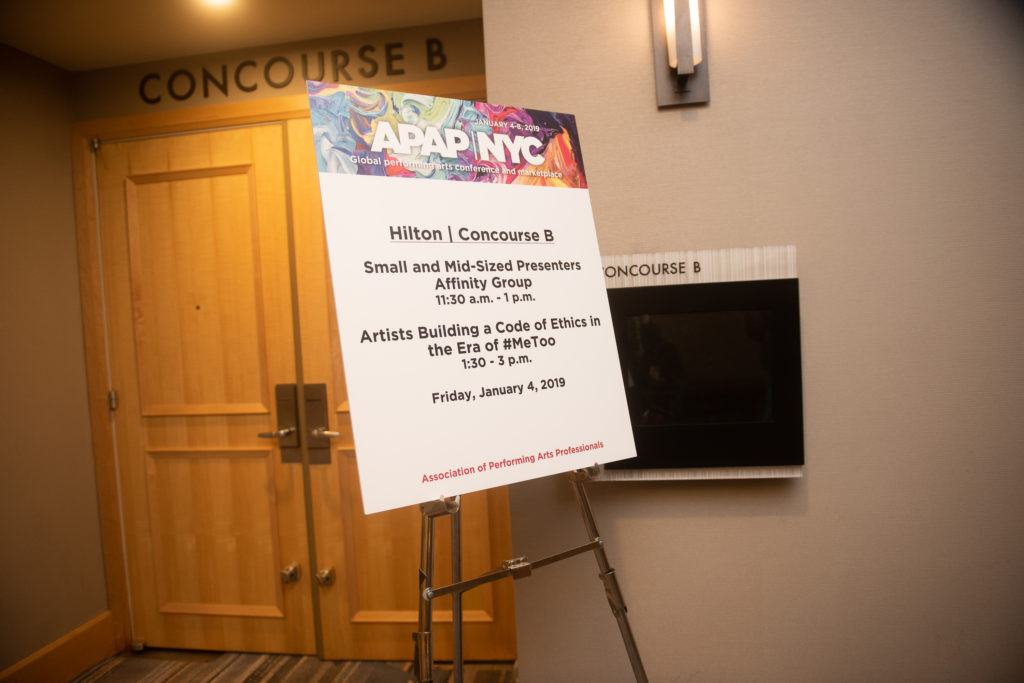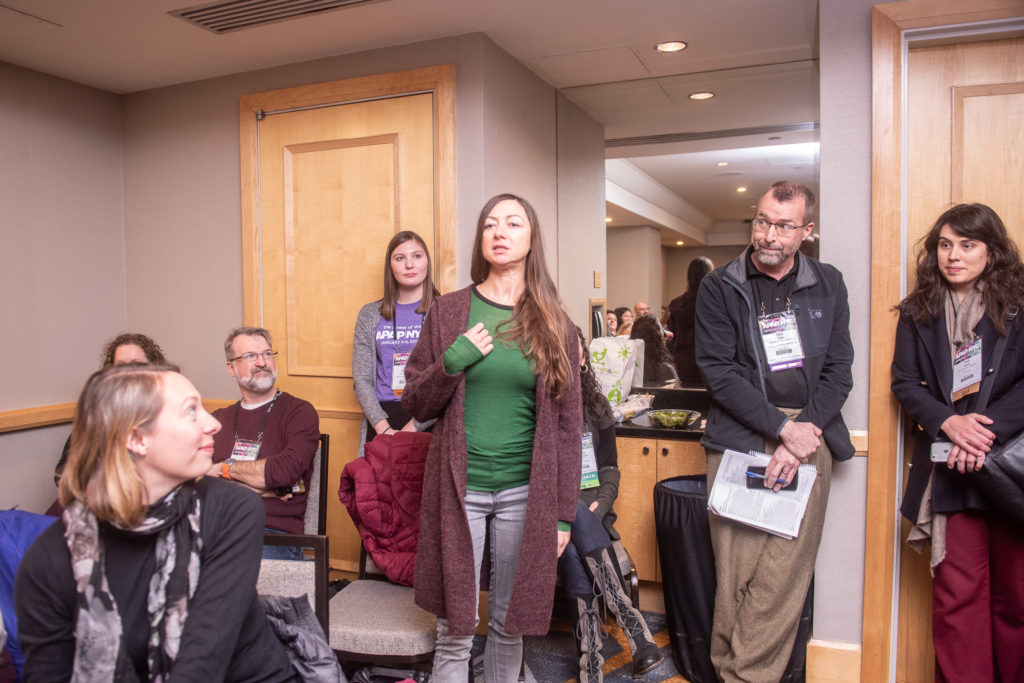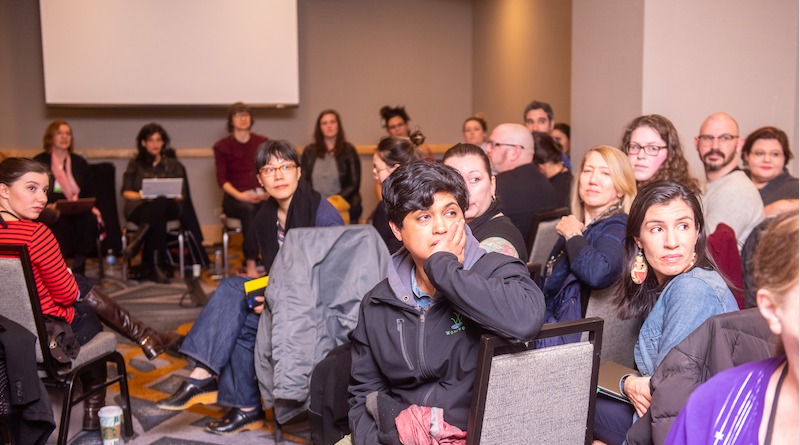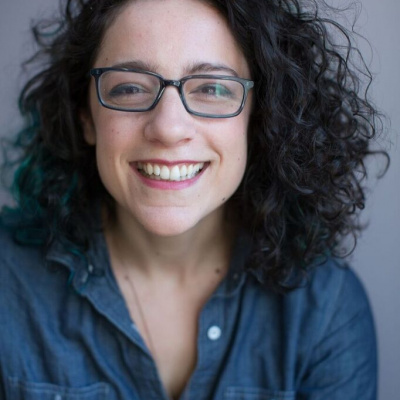Saying No in a Culture of Yes: Artists Building a Code of Ethics in the #MeToo Era
As circus arts have increased in practice and popularity, many conversations within the circus community about representation, accessibility, and communication amongst different genders, races, and cultural perspectives are being called into review. Such discourse is reflective of an historical cultural moment that is happening on a global scale. In the performing arts sector, these issues take on a level of nuance that go beyond those of more traditional workplaces. The physical nature of our work, the vulnerability of creative process, the power dynamics in a production hierarchy, and other conventions of our field complicate the delineation of healthy boundaries and safe, inclusive spaces. Even legally, as freelance contractors, our rights are different than those are for employees of a business.

The question of how to have healthy professional boundaries and dynamics in the creative sector inspired a new panel conversation to be offered at the annual Association of Performing Arts Professionals (APAP) conference in NYC. The Artists Building A Code of Ethics in the #MeToo Era session was described as being “In response to #MeToo and other social justice movements, artists and artistic communities are developing codes of ethics to hold themselves and others accountable, as instances of implicit bias and of explicit harassment gain greater recognition in society and in our field.” With a promise to provide opportunities to “Learn about these artist-driven efforts and how to develop a code for your own organization or community.”
The panel was comprised of artists and activists from around the country who are all parts of larger collective efforts to create not only safe workplace practices in the performing arts (from acknowledging the fluidity of what evenis an artists’ workspace to how people engage with each other within them), but also to discuss revolutionary strategies of changing operational structures from the inside out. The panel was comprised of Laura T. Fisher (Not in Our House), Emily Marks (Lionheart Live Arts and Youth Theatre), Michèle Steinwald (44 Arts Productive), Taja Will (Diversity & Inclusion Committee at Earthdance), Imani Uzuri (We Have a Voice), and Elaina Di Monaco (Philadelphia Theatre: A Code of Ethics). Before the panelists began their presentations, the moderator Michèle Steinwald invited those of us in attendance to introduce ourselves and share what we were interested in discussing. The questions covered a range of concerns:
- “We describe this as a workplace issue, but how we we define a workplace when a workspace can be a studio, a cafe or even a living room?”
- “How do we overcome the amount of gendered harassment in the production hierarchy?”
- “How can we reflect these kinds of nuanced behavioral considerations in a contract?”
- “How can we take a more intersectional approach to our organizing around #MeToo?”
- “How do I introduce this conversation to my conservative workplace?”

The first panelist to speak was Taja Will, a latina dancer, choreographer, and educator based in Minneapolis, who also runs a healing practice using her backgrounds in developmental psychotherapy and somatic movement. Will is also co-founder of the Diversity & Inclusion Committee at Earthdance, a contact-improvisation and somatic dance center in Massachusetts, where she is working on bringing in more intersectional programming and creating structures for responsible interpersonal dynamics. Her presentation cited how incidents of microaggressions, cultural appropriation, tokenization of people of color (POC) in the community, and unclear rules of touch in contact improvisation factored into unhealthy power dynamics at the center. “In contact [improvisation] we have tons and tons of examples and stories of folks who have come into a space, felt like their boundaries were crossed, did not have a process for calling that into conversation or calling it out into the public. This is something that’s being talked about a lot in the implementation of community guidelines and jam guidelines.” To address how to better serve different genders, races, and abilities the committee has implemented several strategies. They are bringing in an outside facilitator to each seasonal contact jam, programming around disability justice, queer visibility and including more people of color by holding POC-only jam spaces. The issues Will raised felt very resonant with the conversations I’ve heard about in the circus sector. It begged the question: do we have committees comprised of people with intersectional experience, that are dedicated to addressing these issues in circus?
The physical nature of our work, the vulnerability of creative process, the power dynamics in a production hierarchy, and other conventions of our field complicate the delineation of healthy boundaries and safe, inclusive spaces.
The next panelist was Emily Marks, a theatre artist based in Memphis, Tennessee who works primarily with youth and theatre for young audiences. In addition to her professional work in the arts, Marks also endured a 14 month lawsuit after suing her board of directors for firing her the day after she filed a harassment complaint. The experience led Marks to research ways to strengthen safe spaces in the creative sector for adults and young people. She described the importance of institutional healing, citingOrganizational Trauma and Healing by Pat Vivian and Shana Hormann :
Trauma can affect organizations just as it affects individuals, families, and communities. And just as silence and lack of understanding about trauma hurts individuals, so too does it hurt organizations… Organizational culture is bigger than any one person, and the culture (and trauma) lives on through agency transitions and staff changes…Recognize and acknowledge trauma: trauma heals best when we name it and begin to talk about it. Give people time to grieve and process. Then we can work towards integrating the trauma in affirming and meaningful ways.
As we’ve all experienced, plenty of institutions in the circus sector have been under toxic leadership or staffed by abusive employees, and we have struggled to address the systemic implications of that. Marks’ experience offered context and resources that we might be able to use when discussing these things. Currently, Marks is working with the Memphis Performing Arts Coalition (MPAC), and the group is working on four projects to begin the creation of a stronger and safer community. Similar to Will’s committee at Earthdance, this coalition is doing inspiring work that we could apply to the circus sector as well. The MPAC began their research with a community wide survey to see who was making work so that those making work could contribute to the code of ethics that was representative of the diverse creative sector in the city. Marks then brought to light one of the huge barriers to progress that exists in communities that hold a scarcity mindset, “There’s a tradition in the city of knowledge hoarding. I think knowledge-hoarding and the lack of sharing truths is one of the biggest forms of oppression.” To create common language for discussing oppression and its impacts, the group is bringing in an outside consultant to lead an anti-oppression training. This will lead to the creation of both a main code of ethics document, as well as a similar document for youth, “I feel the way to eradicate this culture is to always talk about it in our creative process and especially in our creative process for young people.” Having a code of ethics for young people is not unique to her coalition, she cited several other groups throughout the country who are adopting similar procedures.
There’s a tradition in the city of knowledge hoarding. I think knowledge-hoarding and the lack of sharing truths is one of the biggest forms of oppression.
The next three panelists who spoke, Imani Uzuri, Laura T. Fisher and Elaina DiMonaco, are all contributors to groups in different parts of the country who have written or are writing codes of ethics. All three have had major impacts to groups in various stages of document creation in their local communities.
Imani Uzuri is part of a group called the ‘We Have Voice Collective’, comprised of 14 artists, scholars, and thinkers who advocate for equity, intersectionality, and codes of conduct to protect incidents of sexual harassment and bullying. The collective has issued an open letter on their website that is open for anyone to sign in solidarity. Their code of conduct has been adopted by over 55 performing arts institutions and companies since its launch in May of 2018. The document highlights why the fluidity of artists’ workspaces and working relationships need their own structural reference points. Uzuri explained, “We wanted to amplify the fact that as performing artists our workspaces shift and … talk about how to we negotiate these relationships that are often social, personable, touch-oriented, huggy, and at the same time professional. At the same time, how do we maintain boundaries?… We wanted to amplify what consent is so that people can be thinking and alive in the room about their own boundaries and we can all shift that culture.” The We Have Voice document defines a workspace in multiple ways that the circus industry will find relatable:
What is a Workplace?
According to the We Have a Voice document, “a workplace, whether physical or virtual, can include but is not limited to a stage, dressing room, office, recording studio, classroom, venue/club, jam session, workshop, residency, rehearsal space, private residence/home studio, hotel room, gallery, social media platform, and communication that involves professional matters.”
Considering the fuzzy boundaries of our workspaces as well as our work relationships brings up important questions on how facilitators and leaders of creative, performance, and educational spaces can provide an environment in which people are able to maintain their own boundaries with ease. The document goes on to describe what consent is and how factors such as irresponsible power dynamics can impact consent. By naming these issues and processes for discussing them, the code of conduct offers its users language to use when boundaries are crossed or situations feel unsafe.
The ‘We Have Voice’ document shares many similar values with ‘The Chicago Standards,’ a 33 page document made by panelist Laura T. Fisher and her colleagues of Chicago’s #NotInOurHouse movement. This document, made to streamline respectful, consent-based practices for people in all capacities of theatre, covers a wide range of scenarios and relationships that happen in the theatre world. When telling the panel the story of how this document came into existence (which is also detailed in the document itself), Fisher elaborated on Uzuri’s “fluid workplace” observation. She cited how traditionally in America, issues of harassment and discrimination are typically handled through legal protocols that don’t extend to the independent contractor workplaces many artists occupy. The document explains:
The Equal Employment Opportunity Commission (EEOC) is responsible for enforcing anti-discrimination laws, but only some employees and some companies meet their definition of “workplace.” Participants in small theatres are often not covered by these laws… Moreover, certain kinds of conduct can be harmful even though they are not technically unlawful.
Fisher also brought to light duality plaguing the arts sector as we work to integrate consent into our creative spaces: “We as actors and I’m sure all of us in the arts, we live in a context ofyes. We are a culture of saying ‘yes.’ and in improv ‘yes, and’ of course. The idea of saying ‘no’ is just antithetical to the way we think, to what we do, to how we expand our thinking, invite others- everything is about ‘yes.’ ‘No’ is about stopping, about minimizing, so it’s sort of not in our DNA [to say no].” Because of all of the nuanced and complicated questions the Chicago Standards sought to outline, the document went through a very lengthy creation process. Fisher recalls, “We had an alive argument and debate and we did it for a year… then we had a two year pilot program in which 20 theatres in Chicago adopted the document. Everyone from the top to the bottom had to agree, including boards, had to say ‘yes we will sign on to this.’ It was vetted and laundered by four different attorneys and an HR executive so that the resultant document is procedural… what it is, is a wholly free, completely voluntary tool for self-regulation for organizations who choose to adopt it.”
After the pilot period and further rewrites, and a week before the final draft of the document was scheduled to be released, The New York Times published its famous story exposing Harvey Weinstein’s harassment of actresses in Hollywood. Having observed ‘The Chicago Standards’ working drafts online in the previous years, theatres and theatre artists around the country began contacting Fisher and her collaborators for guidance on how to make their organizations healthier. In the years since, ‘The Chicago Standards’ have been an inspiration for many of advocates of equity work, including Emily Marks and the final panelist, Elaina DiMonaco. DiMonaco is part of a group of independent artists in Philadelphia following similar steps to all the previous panelists to create a code of ethical conduct for that specific region. As her organization prepares to implement their own document in the community, she discussed what was the importance of creating reporting systems for accountability and apologizing when organizations or people say that they are following the code, but aren’t.
All of the stories, strategies and resources have relevant value to the circus sector. The panel was a helpful reminder that it takes emotional labor and effort from everyone to create, hold, and maintain safe space. There are two distinct ways we can take on this effort. One is the intellectual, discourse-driven approach. This includes reading the existing codes of ethics by other creative communities, creating coalitions to oversee this work on a local level, and ensuring intersectional programming at group spaces. The second approach is a more embodied one that has significant importance in the highly physical world of circus. The innate importance of our embodied listening to each other when we share space was summarized beautifully by Taja Will at the end of her presentation: “I’m really approaching it from a nervous system place. What does my nervous system need? I am basing it on my lived experience because that is the best that I can do, and then in shared cohort, bringing in other perspectives: hearing from folks that I don’t share lived experience with and trying to integrate that through my nervous system. Because I can’t trick my nervous system into feeling more safe; I can’t be told ‘this is a safe space now.’ I’ll know when it is.”
Some resources for further research include: http://wehavevoice.org/ https://www.notinourhouse.org/ http://memphispac.org/ https://www.theatrecodeofethics215.com/ All photos provided courtesy of APAP. Feature photo by Christy Kissick for APAP...
Do you have a story to share? Submit your news story, article or press release.





